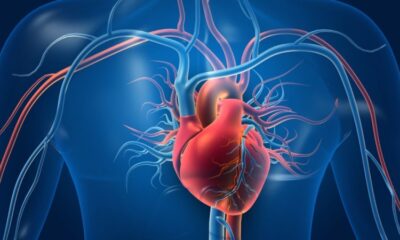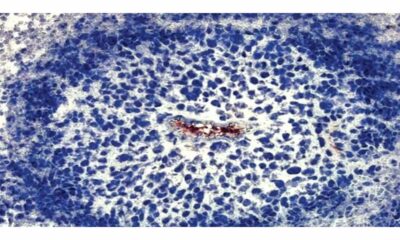Researchers have created an artificial intelligence (AI) model that has the potential to forecast the growth of aggressive breast cancer.
Women with triple negative breast cancer can have abnormalities in their lymph nodes, which are tiny, bean-shaped structures that assist filter cancer cells and fight infection, identified by the AI model.
Under the arm on the same side as the malignancy, the lymph nodes are one of the first locations breast cancer can spread.
Patients will probably require more extensive care in these situations.
The capacity to identify alterations in lymph nodes, according to the researchers, may aid medical professionals in treatment planning and provide patients with reassurance over the possibility of triple negative breast cancer spreading.
“By demonstrating that lymph node changes can predict if triple negative breast cancer will spread, we’ve built on our growing knowledge of the important role that immune response can play in understanding a patient’s prognosis,” said Dr. Anita Grigoriadis, who led the research at King’s College London’s Breast Cancer Now Unit.
“We’ve taken these findings from under the microscope and translated them into a deep-learning framework to create an AI model to potentially help doctors treat and care for patients, providing them with another tool in their arsenal for helping to prevent secondary breast cancer.”
With about 8,000 instances annually, triple negative breast cancer accounts for 15% of all breast cancer diagnoses in the UK, or one in seven cases.
About 25% of breast cancer deaths are caused by this kind of cancer, which lacks any of the receptors (proteins) typically seen in breast cancer.
Triple negative breast cancer is more common in women who have not yet gone through menopause, black women, and women who have inherited a mutated BRCA gene.
The researchers evaluated their AI model on almost 5,000 lymph nodes donated by 345 patients to biobanks, including the Breast Cancer Now Tissue Bank, for the study, which was published in The Journal of Pathology.
The probability of breast cancer metastasizing to other organs was determined by the model.
Even in cases when the breast cancer cells had not progressed to the organs, the team discovered that the AI model could still predict this outcome by merely examining the immune responses in the lymph nodes.
The researchers hope to test their AI model in clinical trials as one of the next steps.
“We’re planning to test the model further at centers across Europe to make it even more robust and precise,” Dr. Grigoriadis continued.
“The transition from assessing tissue on glass slides under a microscope to using computers in the NHS is gathering pace.
“We want to leverage this change to develop AI-powered software based on our model for pathologists to use to benefit women with this hard-to-treat breast cancer.”
About 8,000 UK women are diagnosed with triple negative breast cancer each year, which is a more aggressive type of the disease that frequently has worse outcomes. Dr. Simon Vincent, director of research, support, and influence at Breast Cancer Now, stated as much.
“If, thanks to this research, it’s possible to provide women with more tailored treatment and care based on the likelihood of the breast cancer spreading, it could help to save lives and reduce stress and worry.
“We look forward to further findings to understand how this could work in practice to benefit women affected by this type of breast cancer.”

 Cardiology2 weeks ago
Cardiology2 weeks ago
 Neurology2 weeks ago
Neurology2 weeks ago
 Diabetology2 weeks ago
Diabetology2 weeks ago
 Pulmonology2 weeks ago
Pulmonology2 weeks ago
 Neurology2 weeks ago
Neurology2 weeks ago
 Neurology2 weeks ago
Neurology2 weeks ago
 Cardiology2 weeks ago
Cardiology2 weeks ago
 Psy-Addiction2 weeks ago
Psy-Addiction2 weeks ago


















